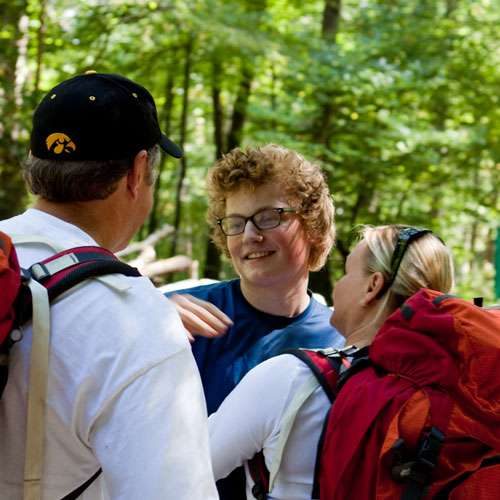 Transitioning through changes in adolescence can be a confusing and overwhelming process for teens. As puberty hits, your teen may be going through a rollercoaster ride of new emotions. Developing effective ways to identify and express emotions is a valuable skill to have throughout all stages of life. It will not only help in building and maintaining healthy relationships as a teenager, but also as an adult. As they take on the adventure of morphing from a kid to a teen, they may have trouble navigating their changes in adolescence. As your child gets older, they have more experiences without you. It is essential that they can articulate their feelings and make rational decisions on their own. A recent article by Psych Central suggests three steps to directing your teen through changes in adolescence.
Transitioning through changes in adolescence can be a confusing and overwhelming process for teens. As puberty hits, your teen may be going through a rollercoaster ride of new emotions. Developing effective ways to identify and express emotions is a valuable skill to have throughout all stages of life. It will not only help in building and maintaining healthy relationships as a teenager, but also as an adult. As they take on the adventure of morphing from a kid to a teen, they may have trouble navigating their changes in adolescence. As your child gets older, they have more experiences without you. It is essential that they can articulate their feelings and make rational decisions on their own. A recent article by Psych Central suggests three steps to directing your teen through changes in adolescence.
How to Help Your Teen Navigate
Be honest about your own feelings. Parent’s often hide their own emotions from their kids because they do not want them to think they are sad or disappointed. If you ignore your own emotions, you teach your kids to do the same. As a parent, you shouldn’t dump your emotions onto your kids. But if they notice you’re upset, be honest with them. It teaches your kids that expressing their feelings is healthy and that they shouldn’t feel weird for feeling the way they do.
- Understand your child. Pay attention to how your teen communicates their emotions currently during their changes in adolescence. They may act out to mask an emotional issue they are dealing with. Do they become aggressive and angry? Do they close themselves off? Do they ignore how they feel and say everything is fine? It is important to know how your kid expresses themselves. It is not uncommon for kids to revert back to acting immature when going through changes in adolescence.
- Let your child know you’re available. You can’t change how your child is feeling, but you can create a space for them to open up about their emotions and challenges. It may take time for them to feel comfortable opening up about what they are experiencing during changes in adolescence. Still encourage them by saying “When you’re ready, you can talk to me about this.” Give them options, try not to force them to communicate the way you do and be understanding about how they currently know how to communicate. Kids may choose inappropriate times to want to talk, like when you’re walking out the door or making dinner. It’s important to make time. Assure them that you understand they want to talk and make a plan to spend time with them so you can.
Experiencing and expressing a range of emotions is human, and a healthy way of maintaining our physical and mental health. Many adults struggle with these skills; it takes practice for everyone. Be a guide for your kid by encouraging them to express their feelings in healthy ways. If they don’t know how, be available to talk and teach them new strategies.
Trails Carolina can help
Trails Carolina is a wilderness therapy program for struggling teens, ages 11-17. Our students commonly deal with issues such as depression, anxiety, ADHD, trauma, and other behavioral challenges.
For more information about Trails Carolina, please call 800-975-7303 today!
Get started today
Contact us today to learn how Trails Carolina can help your family
Trails saved my daughter’s life. Amanda is an amazing human and a brilliant therapist. I am so grateful to her, Science Steve, and the other wonderful people who could reach my daughter at a time when I could not.
Margot Lowman August 2022
Great life changing experience for our son. After becoming addicted to gaming during covid he was very depressed. At Trails he experienced the wilderness, Science Steve, learning survival skills and top notch therapy and support etc… I highly recommend! This gave our son and our family a renewed family bond full of love and excitement about his bright future.
Winnifred Wilson July 2022
Outstanding clinical work and superb staff! There’s a great culture at this company and it shows with how they engage with families/clients.
Kristin Brace June 2022
Discover If Trails Is The Right Program For Your Child
Take our short online assessment and help us better understand how we can help your family.




